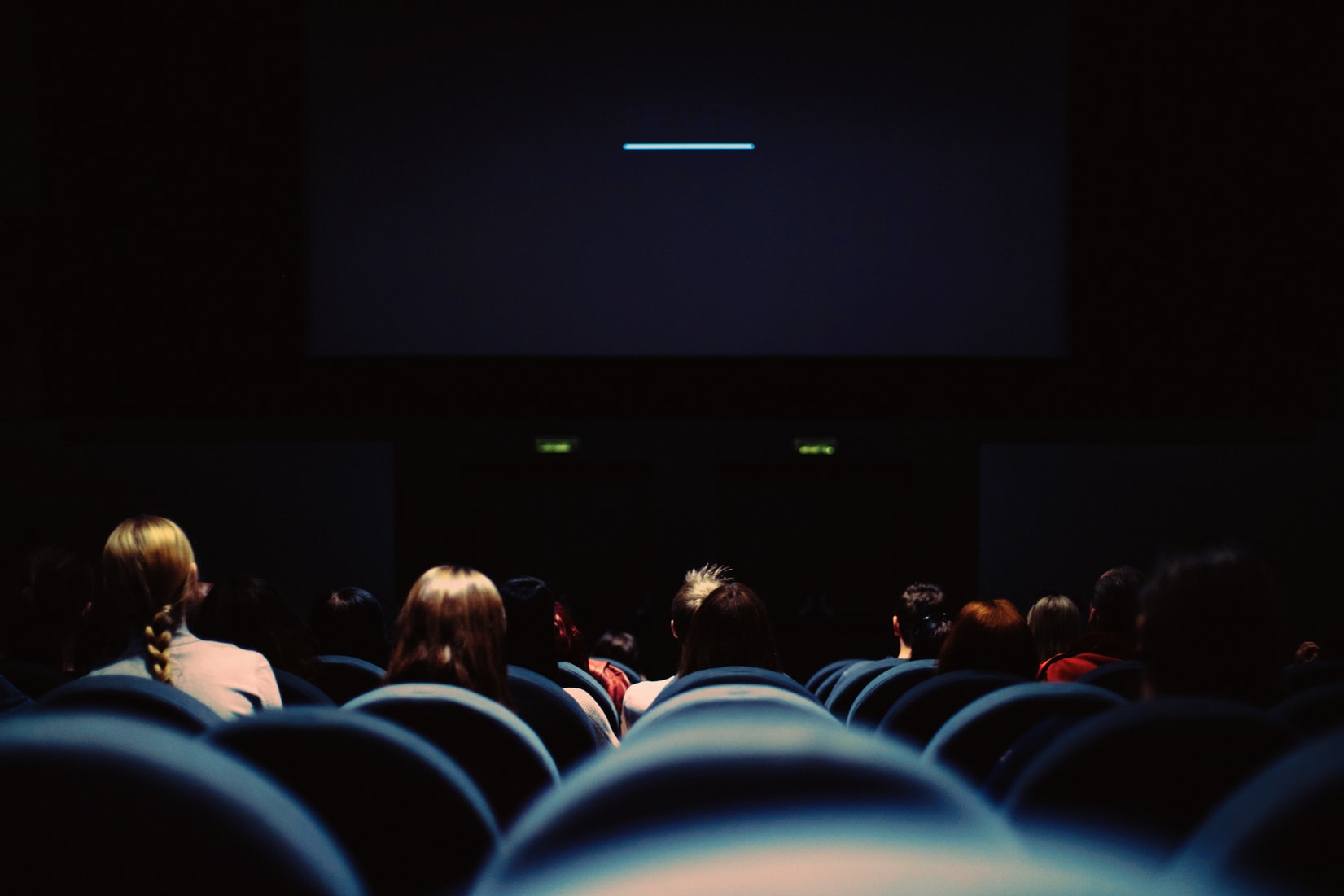
As the decade comes to a close, Redbrick Film’s writers look back at the best films of the 2010s
Todd Waugh-Ambridge – Film Editor
1. Inception (2010)
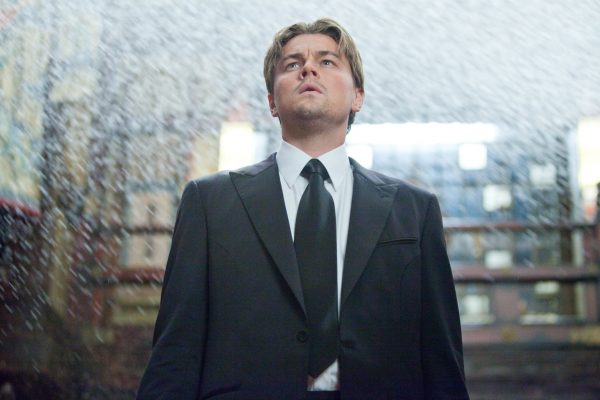
In 2010, Inception hit the screens and has since become the poster child for mind-bending cinema. Countless comments and quips have been made about the movie’s complexity and fast-paced exposition; but I think what makes this my film of the decade is its subtle simplicity. Despite the dreams-within-dreams and the pages of expository dialogue, this is a movie about a father trying to get his family back after tragedy.
Christopher Nolan assembled an all-star cast to deliver a heart-pounding, intoxicating sci-fi action thriller and utterly delivered. Leonardo DiCaprio plays Cobb, who leads a team of dream-delving misfits who are hired to perform corporate espionage by Mr. Saito (Ken Watanabe). What follows is a heist movie that happens entirely within the mind of their target, as they navigate his dreams deeper and deeper in order to ‘incept’ him with the rogue idea to dissolve his business empire. Rounding out the cast is Joseph Gordon-Levitt, Ellen Page, and Tom Hardy in perhaps his most charismatic role to date.
Inception is every one of [Christopher Nolan’s] signature elements firing on all cylinders
Many may now feel that Nolan is overrated – Interstellar’s a bit bloated, Dunkirk’s a tad thin – but Inception is every one of his signature elements firing on all cylinders. His script is sharp, smart, and witty while his directing is masterful. Nolan knows exactly how a scene comes together, and how to string those scenes into edge-of-your-seat sequences by knowing exactly when to crosscut between various points of action. Hans Zimmer’s score swells in these moments to make the whole orchestra of cinema come alive. When reviewing action movies, many critics talk of ‘set-pieces’ and the breathing room between them, but here, once the heist has begun, Inception becomes a single hour-plus long set-piece of gunshots, car-chases, ice-climbing and the physically impossible. The film’s sci-fi setting is clearly a means to an end: Nolan wanted to have characters running up walls and fighting upside down.
But it is the simple elements of this film that work best. Cobb’s tragic relationship with his wife (Marion Cotillard) is explored through the film’s bizarre premise, but it is itself grounded in real emotions that are expressed by DiCaprio and Cotillard to perfection.
Film of the decade is a prestigious title, but Inception deserves it. It may be notorious for being complex and confusing, but its value is in its simplicity: it is a perfectly choreographed action movie that has brains and heart in equal measure.
2. The Handmaiden (2016)
3. Three Billboards Outside Ebbing, Missouri (2017)
4. First Reformed (2017)
5. Vice (2018)
Inception is available now on DVD, Blu-ray, and 4K UHD, and is currently streaming on Netflix.
Peri Cimen – Film Critic
1. The Grand Budapest Hotel (2014)
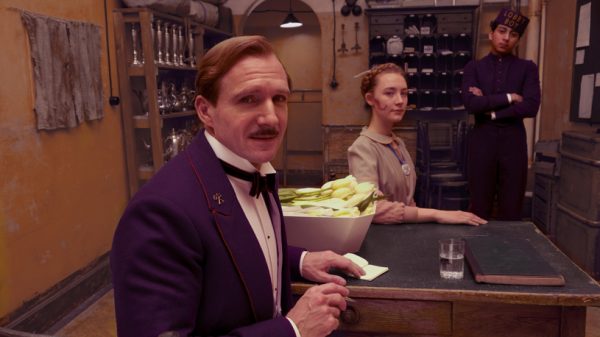
2014 was a particularly outstanding year for cinema. It only takes a quick look online to see how many incredible films from 2014 have dominated the decade in talent and originality. For me, the absolute best has to be The Grand Budapest Hotel. Wes Anderson’s whimsical ensemble comedy is not only a stand-out in his own eclectic filmography, but one of the best films of the decade precisely for encompassing everything there is to love about cinema. The Grand Budapest Hotel is ingeniously funny, beautifully crafted, and features an immensely talented cast. What’s not to love?
At the heart of The Grand Budapest Hotel are the characters, with the unconventional friendship between eager lobby boy Zero Moufasa (Tony Revolori) and meticulous hotel concierge Monsieur Gustave H (Ralph Fiennes) taking centre stage. When Monsieur Gustave is framed for murder, he and Zero are caught in a whirlwind of embarrassing scandals and secret societies. Along the way, Zero falls in love with a baker named Agatha (Saoirse Ronan) and we, like Agatha, join the pair in their misadventures with complete awe and amusement.
The film is decorated with an enormous range of exciting characters and overlapping narratives, and whilst all are compelling in their own right, they come together to create something downright special. Ralph Fiennes, Saoirse Ronan, Willem Dafoe, Jeff Goldblum, Harvey Keitel, Jude Law, Tilda Swinton, and Edward Norton are a mere few of the stellar names that grace The Grand Budapest Hotel, showcasing a remarkable range of talent. Tony Revolori’s performance as the dutiful and doting Zero is especially worth noting for his debut amongst such a well-established cast, and his deadpan delivery creates a compelling dynamic between Zero and the eccentric Monsieur Gustav, who is played to perfection by Ralph Fiennes.
Every scene feels like a hand-painted dream
Wes Anderson displays exemplary use of genre and comedic timing throughout; from Zero and Agatha’s starry-eyed romance to the dramatic revelations that occur throughout the murder plot, The Grand Budapest Hotel has it all. Having won Oscar awards for Best Original Score, Best Costume Design, Best Makeup and Hairstyling, and Best Production Design, it’s hardly an exaggeration to say that every department is flawless. It’s also safe to say that I fell in love with colour after watching it for the first time. From the muted reds and regal violets, all the way down to the pastel pink Mendl’s confectionery boxes, every scene feels like a hand-painted dream. The attention to detail throughout is unmatched (except, perhaps, by Monsieur Gustav).
With all the quirks of a typical Wes Anderson film piled on top of each other, the director himself deserves applaud for the sense of community he creates out of chaos, overseeing all of the moving parts and wrapping them up neatly with Mendl’s bakery bow. The Grand Budapest Hotel is among the best of what this decade has to offer – and it’s delectable.
2. What We Do in the Shadows (2014)
3. Ex Machina (2014)
4. Baby Driver (2017)
5. The Nice Guys (2016)
The Grand Budapest Hotel is available now on DVD and Blu-ray.
Read our original review here.
Ellie Burridge – Film Critic
1. Gone Girl (2014)
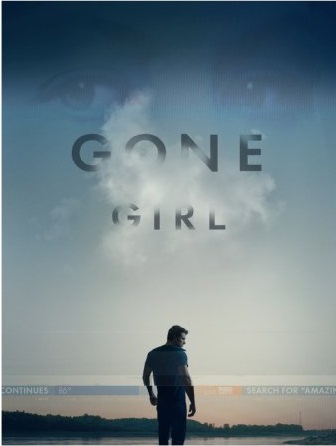
Gone Girl was the first film I ever snuck in to the cinema to see. It was the autumn of 2014, I’d just turned sixteen, and I’d never seen anything like it before. In point of fact, I’d never seen a David Fincher film before, and was still at the age where most of my cinematic exposure was to rom-coms, action franchises and family animation. There was a sense of liberation watching a film that was so deliberately cold, keeping its audience at arm’s length so that the mystery could unfurl before them and thrill in turn—a film that revelled in ambiguity. Neither of the lead characters could simplistically be categorised as ‘good’ or ‘evil’, and were in turns likeable and detestable.
Every moment of the film is deliberate and captivating
To this day, Amy Dunne is my favourite anti-hero of all time, and her triumphant monologue still makes my heart race every time I re-watch it. Gillian Flynn’s razor-sharp script (adapted from her own novel) complements Fincher’s direction and is topped off by a score-of-the-century from Trent Reznor and Atticus Ross. Every moment of the film is deliberate and captivating—which is why it’s my favourite film of all time, let alone the decade.
2. La La Land (2016)
3. The Favourite (2018)
4. You Were Never Really Here (2017)
5. Mission: Impossible – Fallout (2018)
Gone Girl is available now on DVD and Blu-ray, and is currently streaming on Netflix.
Read our original review here.
Sam Denyer – Film Critic
1. Boyhood (2014)
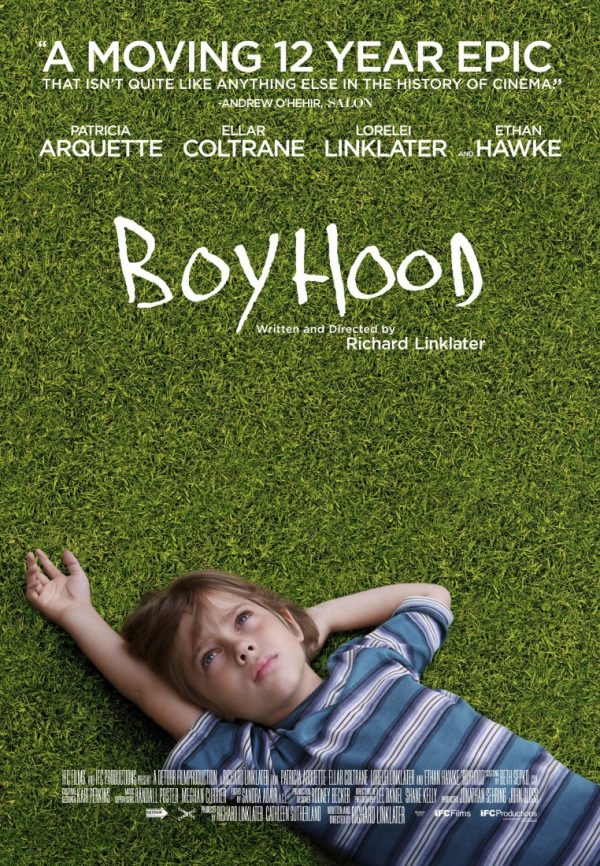
Richard Linklater’s Boyhood sounds like a gimmick. He shot it over twelve years, recruiting the same band of actors to return annually to shoot new snatches of the film. We watch mother, father, sister and brother age in real-time, experiencing a fairly ordinary life which feels extraordinary because Linklater, one of cinema’s greatest naturalists, strings it together with a quiet lyricism which makes even mundanity sing.
Ellar Coltrane portrays Mason, the boy whose journey we follow most closely. As the film progresses, time slips past, often unnoticed, bringing new meaning to ‘oh how you’ve grown.’ The physical transformation is dramatic, but his emotional and intellectual maturation is endlessly rewarding to watch. The sensitivity and curiosity of the precocious child from the film’s beginning are not lost on Mason as he goes to college towards the film’s end. They are merely tempered by experience. We know – we saw it happen over twelve years.
Patricia Arquette and Ethan Hawke as warm, meditative parents anchor the film whatever year it finds itself in, offering the same stability which their children seek in them. Their performances are contemplative and often heartbreaking; experiencing twelve years of life in two-and-a-half hours is overwhelming, but none more so than when you see these two go from bickering divorcees to friends united with pride in the children they raised. The amity between them and their subsequent partners is heartfelt, but we are never allowed to forget how hard-fought such developments were, having witnessed them advance from the messy separation to now.
Linklater strings together [moments] with dozens of others to create a timeline of growth which affects everyone
They are affecting throughout the film, but become increasingly less central as it progresses, symbolising how Mason relies on them less and less as he grows older. In one scene, he comes home on the eve of his sixteenth birthday, having spent the night smoking with a girl. His mother, hosting friends, remarks that he has been out late and smells of smoke. He does not deny anything, nor make any apology. Arquette’s “huh”, tells us everything. This boy is no longer her’s: there are parts of his life she will no longer know about straight away and parts she will never know about at all. It is a small moment, but one which Linklater strings together with dozens of others to create a timeline of growth which affects everyone, not just those going through boyhood. Each person’s growth is inextricably linked to the other and there is often little they can do about it. The film speaks to a communal experience, but one which educates and connects us instead of limiting or isolating. As Mason and a new friend remark at the film’s conclusion, it is moments which seize us: things that seem normal at the time can prove formative. In this sense, Boyhood is a kaleidoscope of retrospect, reflecting its specific memories back onto its audience to convey feelings and relationships which are universal. Far from a gimmick.
2. Call Me By Your Name (2017)
3. Mommy (2014)
4. Lady Bird (2017)
5. Moonlight (2016)
Boyhood is available on DVD and Blu-ray, and is currently streaming on Netflix.
Read our original review here.
Alex Green – Gaming Editor
1. Inside Out (2015)
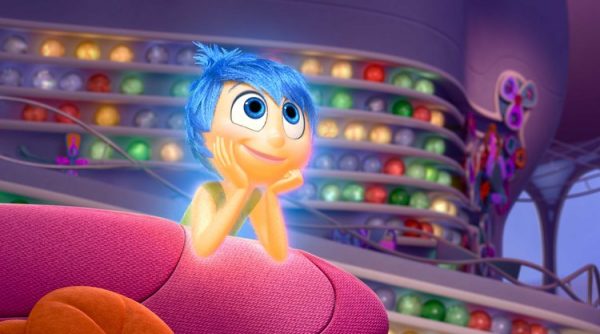
The decade of film has been defined by many changing attitudes and new filmmakers. However, one of the greatest aspects has been the exceedingly high-quality animation. Enhanced by the proliferation of Japanese animated films being released in the west, it truly has felt like a golden age has occurred in this decade. When it comes to Pixar’s best, there is nothing like Inside Out.
Pixar has released some truly classy films over the 2010s. From Coco to Toy Story 3, they have a brilliant filmography. But whilst they are great, they also fall into some of Pixar’s classic storytelling tropes and their preferred format. Inside Out is the rare film that breaks out of the conventions of a Pixar film and creates something completely original and with a freedom that goes beyond its own storytelling.
Don’t get me wrong, this is a film with the classic Pixar blueprints on it. A gorgeously colourful visual style provides the film with a colour palette stuffed to the brim with variation. Accompanied by Michael Giacchino’s wonderful score and beautifully simplistic leitmotifs, Inside Out is a technical delight.
Of course, that is the Pixar standard. Where it breaks out as a gem is in its storytelling and direction. In order to make Inside Out, director and co-writer Pete Docter turned to psychologists when it came to exploring the changes in a young child’s mind as it progresses, in particular looking to Dacher Keltner of the University of California. From that, we get to examine the inner workings of the 10-year-old Riley as everything in her life changes around her.
It’s nigh-on impossible not to cry
This examination provides us with some utterly brilliant ideas to drive the narrative along in order to keep the audience engaged. Concepts such as the subconscious, imagination, long-term memory, and the core of our personalities are all constructed in fascinating ways that provide insight as well as some great laughs. On top of that, following the five core emotions as Riley’s brain starts to change is a great journey with some brilliant humour and excellent writing alongside strong voice acting performances from Amy Poehler and Phyllis Smith among others. Speaking of emotions, Inside Out packs a heavy emotional punch in it’s third act.
Going back to Pete Docter, his inspiration for the film was observing the changes in his own daughter as her mind developed. That level of personal filmmaking is so incredibly apparent as Inside Out brings together its story so completely satisfying, and so beautifully its nigh-on impossible not to cry.
Any film to bring together all these ideas is genuine cinematic excellence. To do so as uniquely as Inside Out is a feat worth praising in a decade. To steal a phrase from TripleDent Gum, it will make you smile.
2. John Wick (2014)
3. Leave No Trace (2018)
4. Lady Bird (2017)
5. Drive (2011)
Inside Out is available now on DVD, Blu-ray and Blu-ray 3D.
Read our original review here.
Samuel Zucca – Film Editor
1. Arrival (2016)
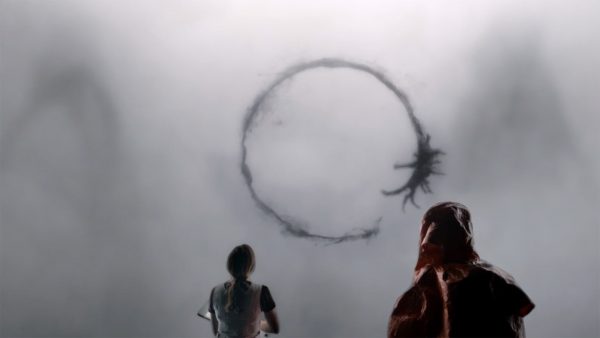
What makes Arrival so incredible is the context in which it came out. It’s a climactic moment in two cinematic developments; the trend towards modern, intelligent science fiction films, and the career of Denis Villeneuve. There have been smart science fiction flicks since the medium existed, but the genre arrived in the 21st century with the remakes of War of the Worlds and The Day the Earth Stood Still. These both took a darker spin on the classics, evoking the global panic of a post-9/11 world.
By the 2010s science fiction was sold as an intellectual, serious genre. There were exceptions, like the monsters vs. giant robots romp of Pacific Rim, but the trend has been towards films which are not just revered for their effects and technology, but for the ideas they bring forward. Her and Ex Machina are obvious examples, but smart, serious cinema was a style that infected even blockbusters like the Planet of the Apes and Star Trek films. This is a trend Villeneuve has also embraced since Arrival, with his takes on Blade Runner and the upcoming Dune remake.
[Arrival] subverts the language of cinema in a way I haven’t seen before or since
I admired a lot of Villeneuve’s films before Arrival, but I found most of them lacking in different ways, and always thought he had a better film in him. Enemy and Prisoners for example, both released in 2013, had opposite problems, with the former being too slow and empty, and the latter overflowing with narrative threads. Sicario is masterfully edited, with a strong central performance from Emily Blunt, but is almost unbearably grim. Then comes Arrival, which I feel is perfect in both its substance and style. From the very first minutes it is bursting with impactful, efficient storytelling. It also has a cracking twist, and subverts the language of cinema in a way I haven’t seen before or since.
Arrival is a gorgeous film, with an eerily plain design for the alien spaceship which dominates the landscape, and an interesting take on the alien language that is central to the film’s dilemma. Then there’s the late Jóhann Jóhannsson’s incredible score towering over the film. The music blends into the sound design, tying the themes of language and inter-species contact together with animal noises and loops of human voices, mimicking and responding to the aliens. It also reaches colossal crescendos which shake you to your bones.
Amy Adams’ Louise Banks offers a unique and empathetic approach to the extra-terrestrial encounter
What makes it a cut above though is the script, which edges it past its contemporaries like Interstellar or Gravity. I am a sucker for a well written film, and Eric Heisserer’s script untangles Ted Chiang’s abstract short story into something tight and elegant. It’s also great seeing a linguist as the protagonist, as Amy Adams’ Louise Banks offers a unique and empathetic approach to the extra-terrestrial encounter. Its Adams and Jóhannsson who make the heart of this film, and it’s a shame that neither of them were even nominated for Academy Awards.
There are films I appreciate more that have been released this decade, and others which I’ve had more fun watching, but seeing Arrival was undoubtedly the most emotionally impacting experience I’ve had in the cinema in the last ten years.
2. Moonlight (2016)
3. Boyhood (2014)
4. Life of Pi (2012)
5. The Act of Killing (2012)
Arrival is available now on DVD, Blu-ray, and 4K UHD.
Read our original review here.
Antonio Aguila – Film Critic
1. Your Name (2016)
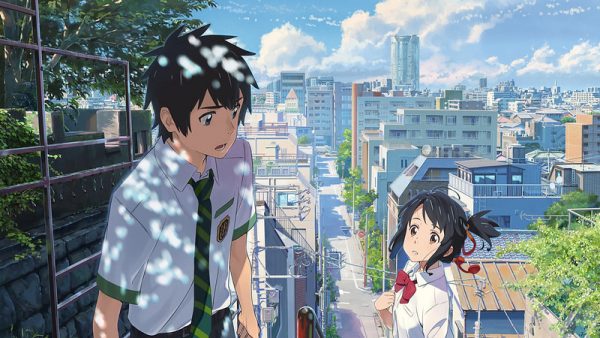
Have you ever been weighed down by that longing for something that seems so pre-ordained yet so lost? If so, the remedy I urge for you to take is then the sensationally perfect movie that is Your Name by Makoto Shinkai. After creating this film Japan essentially labelled him as the new Miyazaki, who is responsible for many of the famous Studio Ghibli films. For example, Princess Mononoke, Spirited Away, and Howl’s Moving Castle. As much pressure as that is, I think they are correct. As a fan who has watched and loved all of his movies (I recommend Garden of Words), personally, I believe Shinkai could even surpass him.
Your Name is a vicarious masterpiece that manipulates your heart with adept skill. It is primarily a body-swap comedy between two teenagers, but it hurts to reduce it to that. The director imbues his utmost unique poetic visions onto this generic cliché to convert it into a classic beyond classics. It also ties in themes of long-distance romance, fantasy, religion, adventure, natural disaster, and Japanese culture. The out-of-body experience you go through alongside the characters is undeniably emotional.
Its phenomenal narrative transcends traditional storytelling
Your Name has exceptional animation with magnificent lighting that surpasses the screen and glares its rays and diffractions straight into your spirit. I’ve never seen a film conjure a twilight with such a hyperreal mesmerising quality. We get a strong clear juxtaposition between metropolitan and countryside lifestyles. Both landscapes shimmer and shine with impeccable detail.
Its phenomenal narrative transcends traditional storytelling balancing the comedy, mystery, and heart incredibly well. An amazing script and storyboard that at times favours pillow shots, which I am a massive fan of. I adored that the visuals were so dazing it skews the concept of time and simultaneously pierces the storyline with a powerful sense of loss. As also a big fan of the animation genre as a whole, it is wonderful to see another exception that doesn’t just distract from but can overpower logic and reality with just pure heart. Accompanied by songs with heart-warming and at times heart-chilling lyrics that help drag you even further into an astral plane. It is a very well-paced movie that takes time first enthralling you with its intriguing premise, then builds astonishing momentum especially with its half-point celestial event that will keep you on edge until its tear-jerking climaxes.
Through all of this we are able to vicariously live the care-free nature of adolescence saturated with the melancholic feeling of letting a summers day pass by. Your Name questions arguably the biggest and most human question there are: What am I searching for? Who am I searching for? This isn’t just my favourite film of the decade. It is the best film of the decade. A must watch.
2. Eighth Grade (2018)
3. Joker (2019)
4. The Farewell (2019)
5. Inside Out (2015)
Your Name is available now on DVD and Blu-ray.
Read our original review here.
Matt Taylor – Film Editor
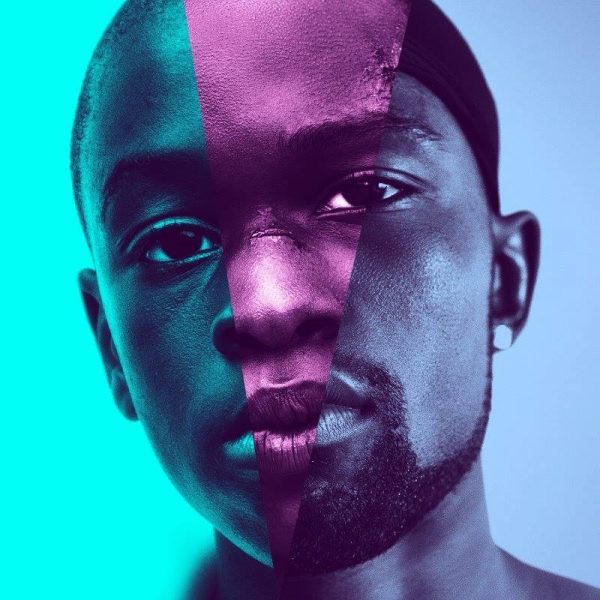
1. Moonlight (2016)
It’s a true shame that most people will remember Moonlight only because of the fiasco at the 2017 Oscars ceremony. A reputation such as that does a huge disservice to Barry Jenkins’ transcendental film that marked a magnificent return to the screen for the director after an eight-year hiatus. Moonlight is a film that is simultaneously bold and subtle, breaking into unforged ground yet never overstating itself.
It follows the life of Chiron at three crucial moments of his life, played in each by Alex Hibbert, Ashton Sanders and Trevante Rhodes as the film progresses. We see Chiron trying to come to terms with how he experiences his life, as well as his own identity as a black, gay man. Jenkins’ film is beautifully understated, always trusting the audience to know what is being left unsaid with only a look from one character to another. There is no one single aspect of it that stands out, as the whole piece comes together to create a gorgeous, subtle, moving masterpiece of modern cinema.
[Moonlight is] a gorgeous, subtle, moving masterpiece of modern cinema
Having said that, there are still many things that make it as good as it is. A good deal of credit can be given to the performances across the board, as everyone imbues Jenkins’ dialogue with a raw and real humanity. Jenkins himself feels so confident behind the camera; James Laxton’s cinematography is gorgeously fluid, almost ethereal at times; Nicholas Brittel’s score is achingly beautiful; and Hannah Beachler’s production design leaves the entire experience feeling as real as possible.
Films like Moonlight are so unbelievably rare. This is an experience that will creep up on you, embrace you, hold you tight, make you feel emotions you never thought you could feel in a film, then leave you sobbing by the time the credits roll. From its opening long take that oozes confidence to its beautifully subtle Holy Moment of a closing shot, Moonlight is undeniably the best film of the 2010s.
2. Arrival (2016)
3. Get Out (2017)
4. Booksmart (2019)
5. Little Women (2019)
Moonlight is available now on DVD and Blu-ray, and is currently streaming on Prime Video.
Read our original review here.
Comments